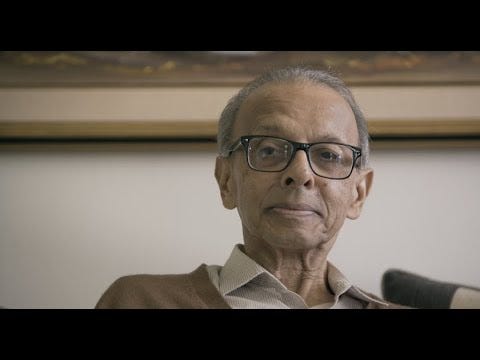We remember school days with nostalgia.
But we also remember those days for another reason - time seemed to move so much more slowly. Each period in class stretched like it would never end, especially the ones with teachers who made subjects a dreary bore.
We envied adults who had independence and they went about their day as they pleased - even if we never quite understood why they seemed harried at times.
A scientist has come up with another explanation.
His theory is that as we age, the size and complexity of the neurons in our brain increases. With age, the accumulated damage to our neurons increases resistance to the flow of electrical information and we process everything slower.
Think of it as a camera firing at a rapid frame rate when you're young. So, you see much more of what's happening and time seems to flow slowly.
But as you age, the frame rate slows down and time speeds up. So, in your mind, events blur and everything seems to rush past.
Ultimately, this is rooted in our perception. The passage of time, or the speed at which it moves doesn't change.
But there is a flaw in this reasoning. Because once people retire or get back to a life less eventful, time slows down again.
Or is that a mirage? Does time simply ebb or rush depending on how interesting or insipid life is?
Photo by Aron Visuals on Unsplash
We're changing the search engine that changed us
We don't see what happens in the split second after entering a search query.
There are millions of search terms being fed into Google everyday and it has become, whether we like it or not, the pulse of our digital existence.
Right from the beginning, Google showed people the sites that other people favored - Page Rank is collective intent, graded by popularity.
As opposed to keywords, which could be easily gamed, Google watched traffic flows and graded websites accordingly.
It created a hierarchy of authority - at the top were government and educational domains. The sites that these linked to got a bit of the authority trickle down to them.
From 3.9 million searches a day in 1999, there are now over 6 billion searches a day on Google. It shows the astounding range of subjects that search has expanded to cover.
Our questions shaped the directions in which Google's algorithm evolved.
Before Google, the questions remained in our minds. Now, Google knows the trends in the world as they form and spread, rippling through the digital universe and uncovering hidden hopes, dreams and aspirations.
There are positives and negatives, much like the vagaries of human nature. The idyllic world of 1999, where we thought the internet would only be a force for good is long gone.
In it's place, we have the best and the worst traits rise to the surface and fight for primacy. And we're still trying to understand what the long-term consequences will be.
Google is the genie we built from our wishes.
Is nuclear power making a comeback?
In 2021, two countries have announced that they will significantly ramp up nuclear power plants.
China announced that it would be building over 150 new ones and France has followed suit, saying that new reactors would be built.
This goes against the grain of how the world sees nuclear power, especially after the Chernobyl and Fukushima disasters significantly impacted public perceptions.
India is already the world's 3rd largest renewable energy producer with 38% of its power coming from renewables.
Germany generates over 45%% of the power it consumes from renewables and that percentage is rising
But that model does not seem to be universally acceptable. Some countries have decided that they will move from coal or fossil fuel to nuclear power instead of renewables.
As climate change begins to have a real impact on economies, countries are reacting differently and their goals are to keep energy costs low. And since it is among the largest components of keeping economies going, there is no wiggle room.
So a dark horse, namely nuclear power, is coming to the fore when all possibilities have been considered.
It's not what the environmentalists would have wanted but each country is jockeying for energy independence. They have seen how energy can become a political hot potato with rising prices leading to inflation.
Another aspect that comes into play is energy dependence leads to compromises having to be made on various other fronts, which may not be apparent or ever enter public discourse.
And countries want to hold their own aces when they negotiate at the head table.
Every week, I'll plant a few ideas in your mind on branding, behavior and markets. Triggers for your thoughts. Spread the word to your friends. All you have to do is click the link and enter an email address.













Share this post